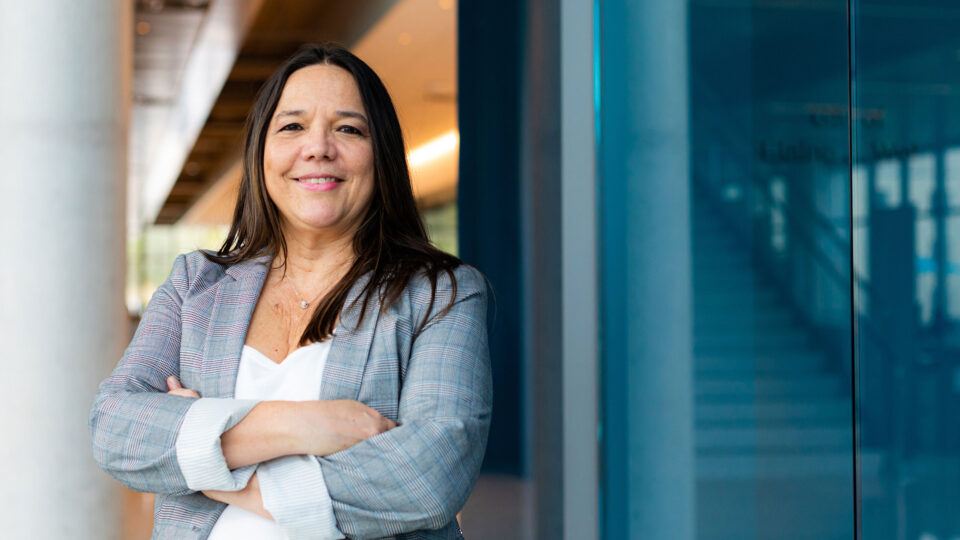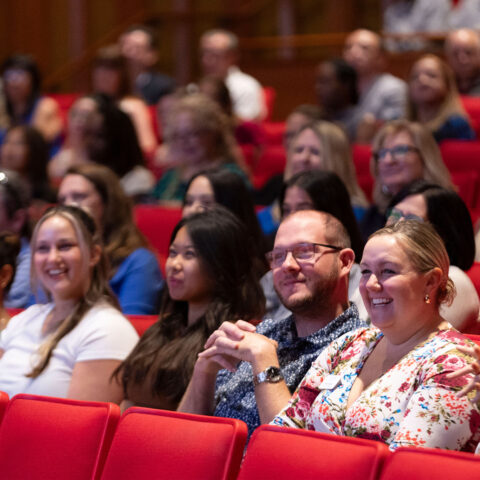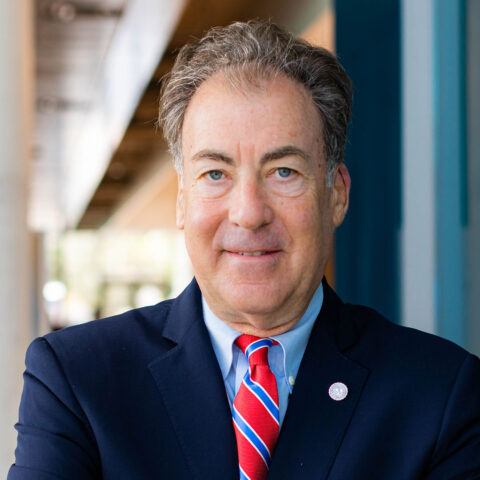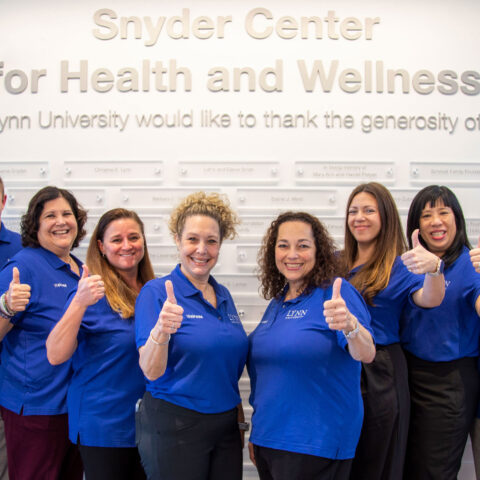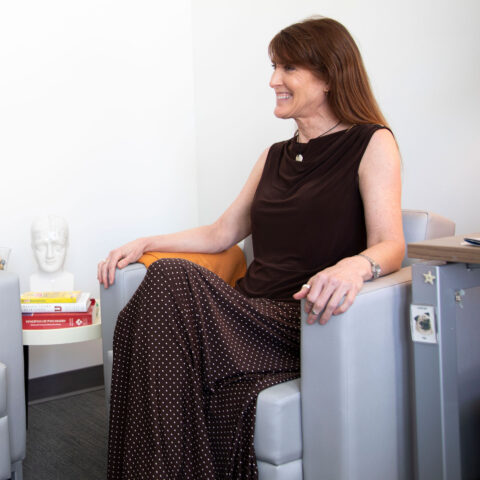Maria Piret '13 has served Lynn University for over 20 years. In January 2023, she was promoted to assistant vice president of Information Technology. Since then, she has led the university technology department in information systems, network, security, support services and project management.
Piret is fearless in taking on challenges. She believes change is essential to progress, and people must take time to view things from different perspectives. Piret loves education and technology and encourages people to continue pursuing their goals and be ready for any opportunity.
What are the biggest lessons you have learned during your time at Lynn?
It is a paradox that although I have been working at Lynn for a long time, I learned that continuous change can be a powerful positive force. The Lynn of today is not the Lynn of 20 years ago. At Lynn, I learned not to fear change but embrace it. Compared to other educational institutions, Lynn changes at a swift pace. I also learned that continuous, fast changes require a unique mix of people that trust each other. I love education and technology, and I am fortunate to be in a field where I can combine both in an environment of continuous change.
What has been the best part of your experience at Lynn?
People are the best part of working at Lynn. At Lynn, I have grown as a professional and as a person. I have an amazing team and lifelong friends. Life sometimes gets bumpy, and I know I have caring people around me to lean on.
What do you consider to be an essential aspect of leadership?
Trust is essential in leadership. It gives leaders legitimacy and a solid foundation, especially in agile organizations that demand constant change. Trust is not easy to accomplish. You cannot buy it or get it with a certification. It takes time, transparency, consistency, and a proven record of successful ventures, but also humbleness in failure. Leaders need to care for and trust colleagues and reports.
What's been the most rewarding and most challenging parts of your new position?
The most rewarding part so far has been the recognition from so many of my peers. The most challenging part is transitioning into a new position while managing the high-stakes Workday project. I'm grateful to have a patient team around me.
How do you tackle challenges to create the best possible solution?
Empathy is fundamental. To tackle challenges, one needs to see challenges from different perspectives. One needs to understand the business and its constituents. In my line of work, technology is just a tool; the real business is education.
What is your vision for technology at Lynn?
Lynn's strategic plan sets the guiding principles and provides a common vision of the university's aspirations. We have been working toward the Lynn 2025 strategic plan, and innovation is at the forefront of our priorities. The same technology that can take your organization to the next level can hold you back as it becomes obsolete.
For years we have been working on bringing in a new generation of administrative systems that can support our strategic vision with data and predictive analysis while empowering users and automating processes. We have been replacing our enterprise system for the last five years, as 2025 is just around the corner. I believe the next trend to look at will be AI and predictive technologies and how they can be used in education.
Are there any exciting initiatives that the Lynn community can look forward to?
We are gearing up to deploy Workday Student in 2024. This year, we'll begin moving operations for financial aid, a portion of admissions and student accounts. Next spring, we will deploy student registration and advising. A dedicated team has been working very hard to make this project a reality, and it is time to get the institution ready.
What would you tell Lynn students interested in information technology?
Technology is not just coding and acronyms. You do not have to be a programmer to work in IT. We need designers, business analysts, project managers, writers, etc. Technology can be intimidating at first, but it is an exciting field that benefits significantly from non-technical careers, especially liberal arts. You would be surprised by how many people working in technology come from non-technical backgrounds.
What is the best advice you have received?
There is a big difference between a job and a career. It takes a little bit to find your path. Someone advised me that one of the best ways to approach a career path is to look for job descriptions of the positions you aspire to have in three, five or seven years from now. It takes time to get the experience and requirements for those jobs. Have a list and start working on those requirements today! When the opportunity presents itself, you will be ready. So far, it has worked for me.
